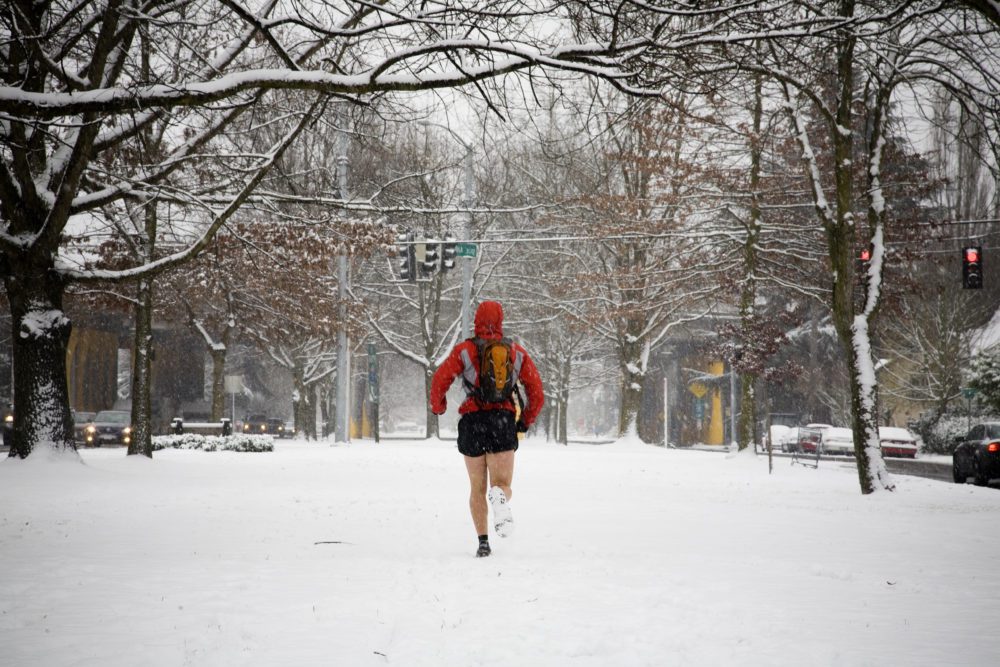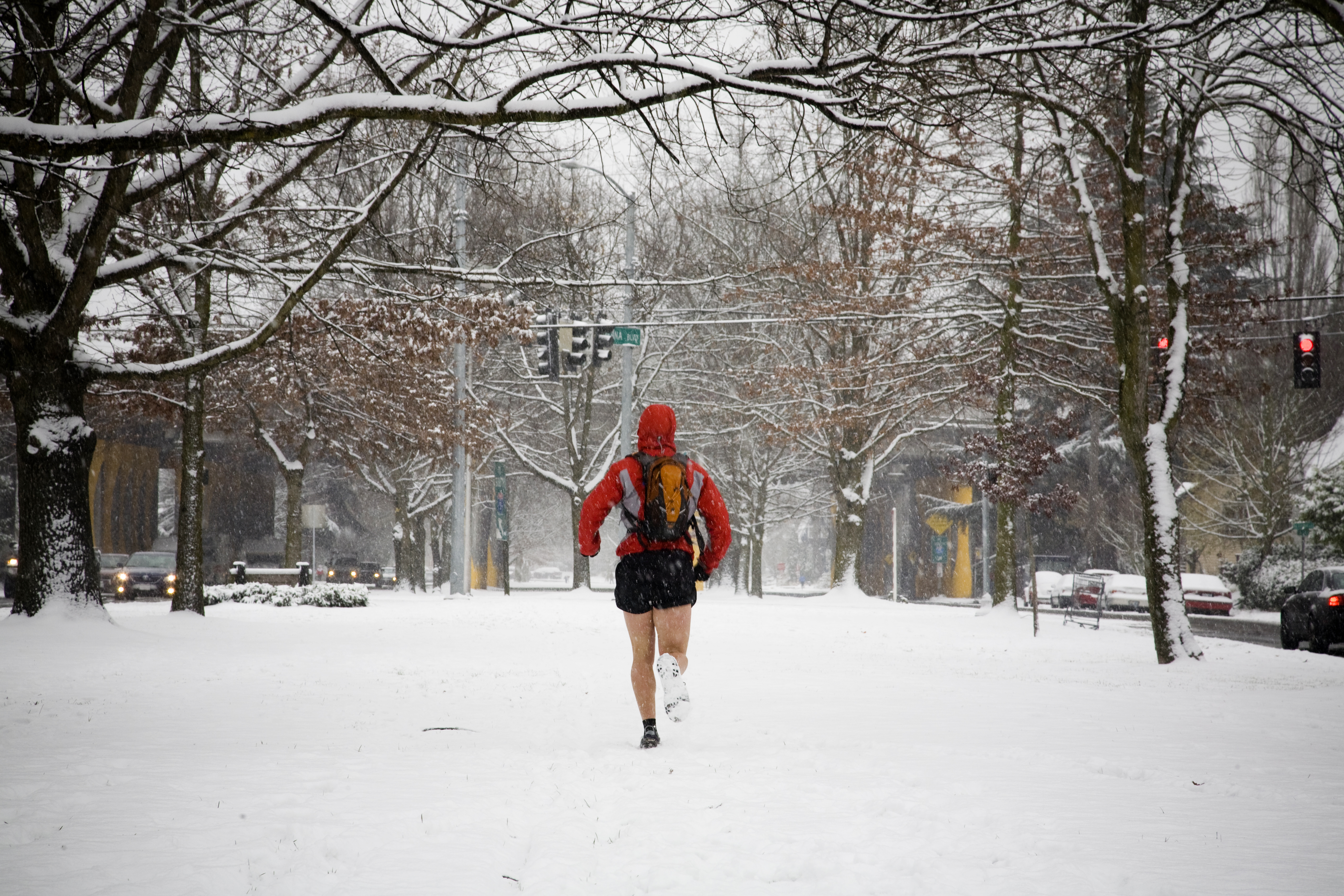Why you run more slowly in winter

As Canadians, we like to brag about conquering winter runs regardless of the nasty weather. But in the middle of winter, your Garmin can produce disappointing results. It seems that everything is slower in winter. There are plenty of reasons for this.
For one, runners have to slow down for slick roads and slippery corners. Treading through piles of snow takes much more effort than running the clear roads in summer and added layers can be slowing factor, especially when wearing too many.
But there are other, less obvious reasons why runners aren’t as fast during the winter months. One reason is that fat is metabolized differently when it’s cold. When the body is in action, fatty acids are released and mobilized, hence the burning of fat while running.When your body is in cold weather though, blood is shunted centrally to protect the organs and so flow to fat cells decreases. There is less mobilization of fats as a result.
Similarly, it’s harder to warm up muscles. Working muscles call for increased blood flow. In the summer, that’s no problem, but in winter, those muscles are competing with blood moving inwards to protect the vital organs. When muscles aren’t warmed up, they feel more tight and rigid. Runners feel less bounce in their stride than they would during other seasons. And, of course, if the footing is poor, you will be forced to slow even more.
Did you know it actually takes more muscle to run in the cold? Athletic people have to call for more muscle to compensate for overall lower power generation. In addition, the muscles contract less efficiently in the cold.
It seems a bit discouraging. Just remember when training that if times are slower, there’s a reason. As temperatures rise, those times will drop.



